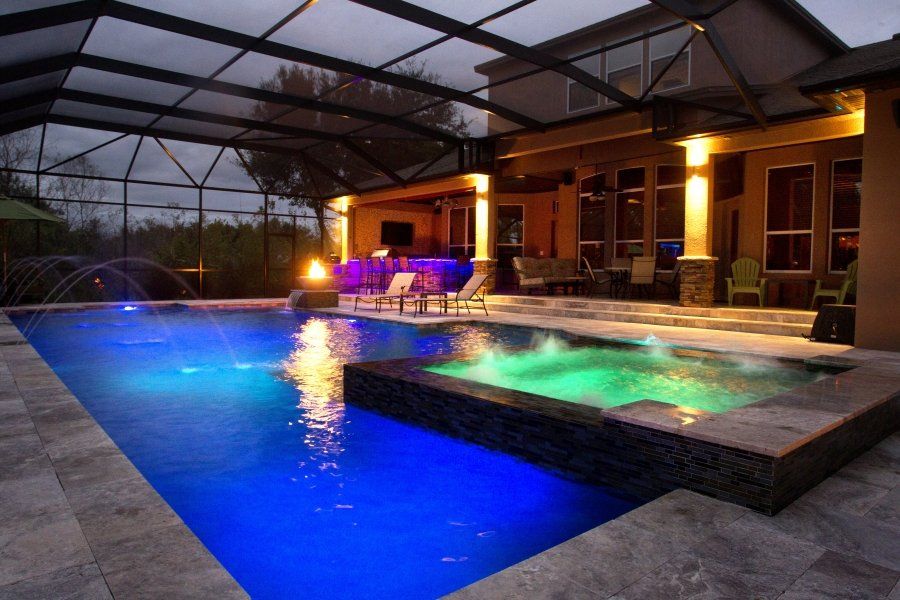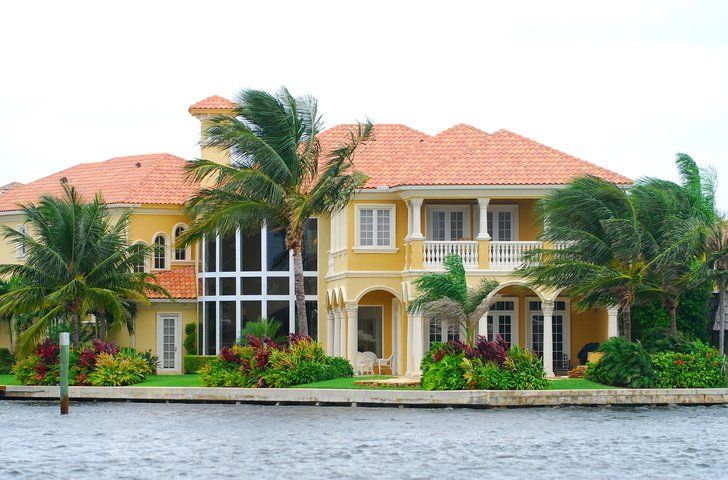What Is Home Watch?
March 5, 2021
Home Watch is a service offered to people who own multiple homes. It is very popular in areas that have a large percentage of seasonal residents like Florida, Arizona, California, North Carolina, South Carolina and many others with a heavy seasonal, and tourist, population. It was originally considered assistance by “Neighbors Doing Favors.” These were the individuals who lived in a community year-round and would offer a helping hand to their snowbird friends.
As it gained popularity, many started to take payment and promote Home Watch as a business. Unfortunately, these individuals often did not establish a business entity, get insurance coverage, or operate with an agreement or contract with their clients. They gained the name of “Hobby Home Watcher.”
This started to change around 2008 when Home Watch became more popular. The first trade organizations were launched as well as companies that offered professional training and consulting. The seasonal homeowners became better educated and learned to vet a business before handing over the keys to their investment property.
Home Watch is not a regulated business as of the writing of this article in 2018. Many companies state that they are Licensed, Insured, Bonded. There is no specific license for home watch and stating such is considered misleading. However, the homeowner should confirm that the Home Watch provider is properly insured, bonded, and expect to sign a contract that defines their responsibilities as well as those of the homeowner.
A vacant home is a vulnerable home. The homeowner needs to learn about the proper care of their home based on the Home Watcher’s knowledge of potentially damaging situations. There are now many trained, qualified, Home Watch Professionals operating excellent businesses. Their job is to conduct a systematic, comprehensive, visit of the home looking for any irregularities. A trained Home Watch Reporter knows how to recognize damage in the early stages before it becomes a disaster. They have resources to help remedy the situation.
There was a tipping point in the world of Home Watch in 2017 when Hurricane Irma hit South Florida. It was estimated that the storm caused at least $50 billion in damage, making Irma the costliest hurricane in Florida history, surpassing Hurricane Andrew. Many people did not have a Home Watch service or engaged a company that did not know how to prepare homes in advance of the storm or who were ill-prepared to help in the aftermath.
This event catapulted the awareness of the importance of working with a “Real Deal” Home Watch Company.
Home Watch is often confused with House Sitting, Home Inspection, and Property Management.
Home Watch is now a true, recognized, and respected profession. It is on the way to becoming an actual industry. Homeowners can find many resources to learn about the service as well as how to locate a qualified, credentialed, Home Watch Reporter.

Did you know that the number one way swimming pools lose water is through evaporation? According to the Department of Energy, 70% of water loss in pools and spas is through evaporation. Of course, you also have leaks - which probably accounts for the second reason. But, how can you tell the difference? How do you prevent swimming pool evaporation? Are you losing water because of everyday science or are you losing water because you have a leak somewhere? Honestly, both answers warrant an explanation, don’t you think? Let’s dig a little deeper. Losing Water Through Evaporation Everyone knows that evaporation is just the process of liquid forming into vapor. But, how does that fit in with our swimming pool? Evaporation occurs whenever you expose wind or air to the surface of your pool. So in short, this applies to every pool, all the time. Water molecules rise to the surface, form into a vapor and eventually get released into the air. What causes pool water evaporation? There are three main factors for evaporation: Exposure, temperature and humidity levels. • Exposure. The more your pool is exposed to the sun and wind, the more evaporation you'll see. A screened pool will evaporate less than an unscreened pool. A pool surrounded by a fence, trees or a structure will evaporate less than a pool that is facing an open sky. A pool that isn't on a lake, golf course or other large piece of land will evaporate less than a pool that is. • Temperature. Throughout our cooler months in Southwest Florida (typically mid-December thru February), we see a significant contrast between the high and low temperatures, sometimes more than 25 degrees. This allows your pool to heat up during the day and evaporate all night. In fact, if the sun is down and you turn on your pool light, you will likely see a mist above the pool. This is the water evaporating and it does this all night, every night. • Humidity. High humidity equals very low evaporation, whereas low humidity equals high evaporation. The air is like a towel or a sponge: The drier it is, the more water it can hold. The best way to describe this is from my wife, Kim, who is a Hair Stylist. Ladies, you know your perfectly styled curls will fall as soon as you walk outside here in the summer, and you can expect very low evaporation from your pool. These factors vary greatly from area to area and from season to season. Another example is: Arizona summers are dry, whereas, here in Southwest Florida, between daily showers and 100 percent humidity, summers are wet. Therefore, evaporation is high during an Arizona summer, but very low during a Florida summer. Luckily for us, there are ways to fight evaporation. 1) Cover Your Pool and Spa The best way to prevent evaporation is by purchasing a pool cover. According to a study by the National Pool Industry Research Center (NPIRC), pool owners can save a considerable amount in water savings by covering their outdoor swimming pools. In fact, pool covers can reduce evaporation by 95%! Honestly, that alone is enough proof for me to consider purchasing a pool cover. However, there are other benefits to adding a cover to your pool. In addition to preventing pool evaporation, pool covers also keep the warmth inside your pool. I mentioned earlier that when you’re losing water via evaporation, you’re also losing a lot of the heat generated by your heater or heat pump. The cover traps the heat inside the pool and reduces the energy demand on your pool equipment. Additionally, owning a pool cover reduces the number of chemicals you’re using, reduces the debris in your pool, and reduces the amount of time you operate your pump and filter. Keep in mind, there are several different covers you can purchase for your swimming pool. Here is some more information on the types of covers and their benefits. You can invest thousands in a high-end automatic cover that extends across the pool with the push of a button. Or, you can drop about a hundred bucks for a lightweight solar blanket. These thin plastic blankets float on the pool surface and go onto the pool manually or with a reel. 2) Turn Your Pool Water Features OFF I love pools that have extra cool features like waterfalls and jets. However, if you want to help prevent pool evaporation, we recommend turning them off from time to time. Waterfalls and jets increase the amount of water exposed to sun and air. As a result, they are also more prone to evaporation. Laminar jets or cascading waterfalls have the greatest chances of higher evaporation. We recommend turning your water features off, especially when they are not in use. This can save you money on water and on chemicals. Of course, when you’re ready to entertain guests again, turn those babies on again! 3) Lower Your Water Temperature As we now know, warmer water evaporates at a faster rate than cooler water because the molecules are moving faster. As the temperatures drop, the warm water evaporates even faster. In warm water, molecules turn into mist, which evaporates quickly. This process accelerates when the temperature of the pool water is higher than the air’s temperature. Cold water is more resistant to evaporation. Keep this in mind if you are trying to prevent evaporation and save money on water, however, if you are like me, I hate cold water! If this is the case for you too, my recommendation is to purchase a pool cover! How Can You Tell If You’re Losing Water From Evaporation? One sure way to determine whether your pool is losing water from evaporation or from a leak is to perform a water bucket test. To perform a bucket test, complete the steps below. 1. Fill your pool to its normal level. Using a standard bucket, fill it to 1 inch from the top with pool water. 2. Place the bucket in the pool at about five inches. You can set it on the first or second step of your pool. 3. Mark the water level inside the bucket and the water level outside the bucket. (You can use a marker or piece of tape) 4. Return after 24 hours to compare the inside water level on the inside to the water outside. If the water level outside of the bucket dropped more than the water level inside of the bucket, then you likely have a pool leak. At this point, we recommend calling a professional. Key Points: • Make sure to check the bucket at the 24-hour mark to avoid inaccurate results. If it rains, wait until it stops to perform the test. It will obviously give you inaccurate results, as well. • Remember, losing water to evaporation is normal - until it isn’t. Purchasing a swimming pool cover is the ideal method to prevent swimming pool evaporation. Not only does it prevent water from escaping your pool, it also traps any heat your heater or heat pump generates. • If you’re losing more water than you think evaporation allows for, perform a water bucket test. The bucket test is the easiest and cheapest trick homeowners have available. References: https://www.angi.com/articles/pool-level-dropping-it-leak-or-evaporation.htm http://osceolaaquaticsinc.com/is-your-pool-water-evaporating-or-is-it-leaking/ https://articles.bluehaven.com/saving-water-in-swimming-pools-5-ways-to-cut-pool-evaporation
















